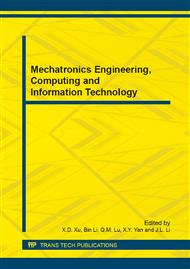p.3523
p.3527
p.3532
p.3536
p.3541
p.3545
p.3549
p.3553
p.3558
M/M/1 Queue Model with Uncertain Parameters by Monte Carlo Simulation
Abstract:
M/M/1 model was the most important and basic of all queue models. The paper combined Monte Carlo simulation with traditional M/M/1 model. The paper set an example of traditional M/M/1 system and calculates its indicators of performance firstly. Secondly, define the parameters with combination of the observation data and Delphi results. Thirdly, do Monte Carlo simulation with computer and software. In the end, compare the results by two methods. The results showed that the performance could be acceptable and did not need to make any improvements in case of traditional calculation. But, lots of things had been changed when the parameters had become uncertain. All indicators showed a big risk after the Monte Carlo simulation. Compare the results of traditional M/M/1 model and Monte Carlo simulation; it was found that it was necessary to treat this kind of problem as an uncertain problem in order to improve the accuracy of decision making.
Info:
Periodical:
Pages:
3541-3544
Citation:
Online since:
May 2014
Authors:
Keywords:
Price:
Сopyright:
© 2014 Trans Tech Publications Ltd. All Rights Reserved
Share:
Citation:


